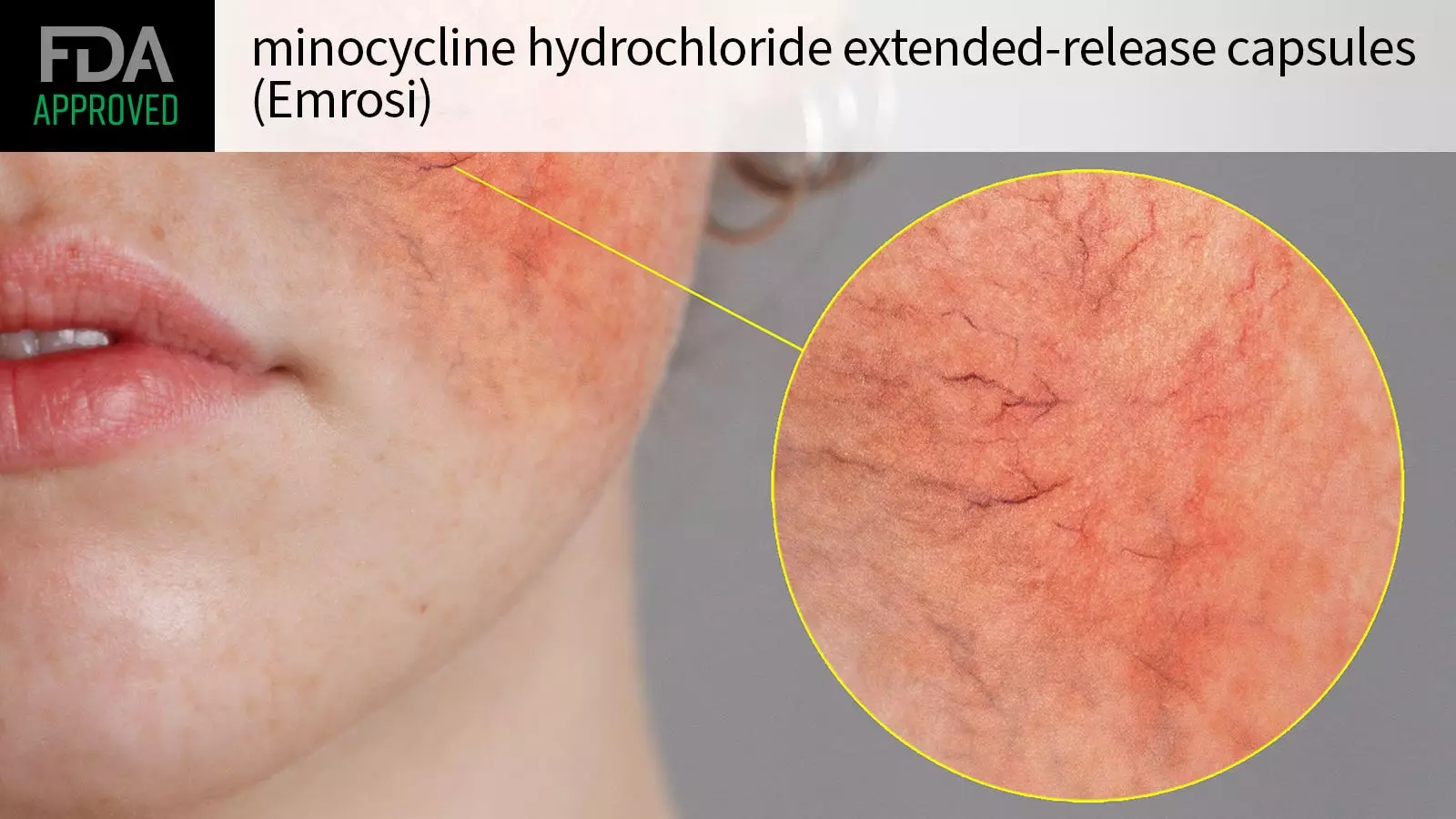The recent announcement from Journey Medical regarding the FDA’s approval of minocycline hydrochloride, marketed as Emrosi, represents a significant milestone in dermatological care, specifically for adults suffering from inflammatory lesions of rosacea. This tetracycline antibiotic has been validated for its efficacy through rigorous clinical trials that underscore its potential benefits over existing treatment options.
The efficacy of Emrosi was demonstrated through two well-structured multicenter phase III clinical trials, labeled MVOR-1 and MVOR-2. These studies collectively involved 653 participants diagnosed with papulopustular rosacea, a common and often distressing skin condition characterized by redness, swelling, and pustules. What sets these trials apart is their randomized design, wherein participants were assigned to receive either minocycline hydrochloride at a daily dose of 40 mg, doxycycline—the previously established treatment standard—or a placebo over a 16-week period.
At the trial’s outset, participants displayed a concerning average of 25 inflammatory lesions, with 15 being the minimum required for inclusion. The assessment tool used, Investigator’s Global Assessment (IGA), provided a clear framework for evaluating treatment success, defined as achieving an IGA score of 0–1 with at least a two-grade improvement from the baseline measurement.
Results showed promising efficacy for minocycline, with 65% of patients in the MVOR-1 trial and 60% in the MVOR-2 trial respectively reaching treatment success. Comparatively, only 46% and 31% of those on doxycycline, and 31% and 27% of those on placebo achieved similar results, signaling a substantial improvement in response rate for patients treated with Emrosi.
While minocycline hydrochloride presents an innovative approach to treating rosacea, it is not without risks. The most frequently reported adverse effect in trial participants was dyspepsia, noted in 2% of patients, highlighting the need for ongoing monitoring during treatment. Furthermore, the medication carries a contraindication for individuals with a known hypersensitivity to tetracyclines, and it has been associated with severe reactions, including anaphylaxis and skin disorders in past acne treatments.
The prescribing information also includes vital warnings concerning potential complications such as Clostridioides difficile-associated diarrhea, which demonstrates the need for clinicians to exercise caution, particularly in light of rising concerns regarding antibiotic resistance. Moreover, there are significant considerations for special populations, including pregnant women and children, where minocycline has been linked to permanent teeth discoloration and inhibited bone growth.
Journey Medical anticipates that this groundbreaking formulation will be available to healthcare providers and patients in the first half of 2025. The approval of Emrosi not only enriches the therapeutic landscape for managing rosacea but also reinforces the importance of research-driven advancements in dermatology. As clinicians begin incorporating this new option into their treatment protocols, ongoing surveillance of its safety profile will be essential in ensuring its effective and responsible use. The arrival of minocycline hydrochloride could very well mark a new chapter in the management of this challenging skin condition, offering hope to many affected individuals.



Leave a Reply